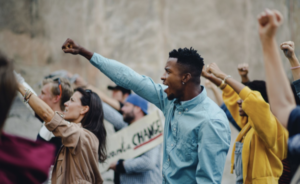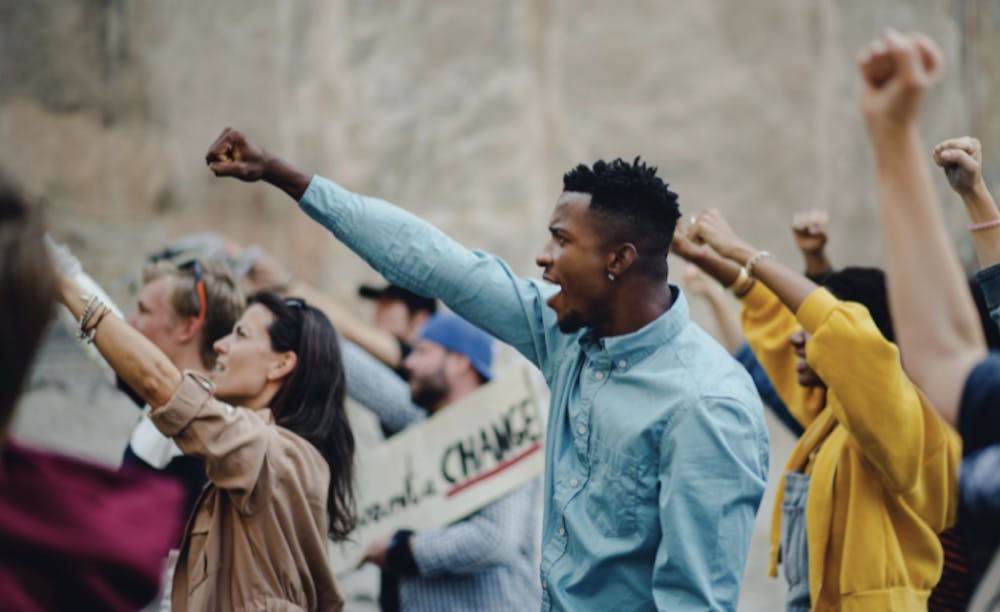By Elizabeth Casalnova
Correspondent
Institutions have been especially vocal about social injustice since last summer when Black Lives Matter protests gathered in streets worldwide. Among them is the College, where President Foster has released emails with calls to action for the community and where anti-racist organizations were born out of the pressure put on the institution by students who wanted change.
The School of Humanities and Social Sciences (HSS) has created the HSS Anti-Black Racism Task Force, whose goal is to reform the curriculum, policies and practices to become an anti-racist institution with a specific focus on anti-Black racism, according to the College’s website.
The College also created the Inclusive Excellence Committee within the Board of Trustees in November 2020 to promote anti-racism and full inclusion, according to their April 2021 anti-racism update.
The anniversary of this wave of change — or the promise thereof — is quickly approaching. The College community still receives emails every so often from Foster addressing the need to continue anti-racist work, but members of the College community are asking the question: ‘How much change has the community really seen?’

A number of students and faculty believe that the College has taken steps toward this goal, but ultimately feel that not enough has been done as a community and that College has a long way to go in its efforts to dismantle racism
“Until TCNJ's academic departments decenter whiteness — decenter white perspectives and white experiences and fully integrate the BIPOC vantage points and lived realities in the curriculum, the core faculty have not done enough to address systemic racism in their academic departments,” said Dr. Leigh-Anne Francis, an associate professor of African American studies and women and gender studies at the College.
With the continuation of online instruction, it has been difficult for students to see a change in the structure of in-person campus life. Maintaining health safety for the community has stayed at the forefront of the administration’s mind, and some students attribute that to why they have not seen as much change.
“I think particularly for the fact we are living through a collective mental health crisis alongside a pandemic and racialized violence, the reduction in intimate conversations about race is warranted,” said junior Samara Menard, a double major in psychology and women, gender and sexuality studies.
For the future, some students agree that the College has room for improvement.
“I think there needs to be mandatory sessions about racism just like those we had in freshman year when we’d have to sit in Kendall Hall and talk about things like sexual assault,” said Peony Chinoy, a senior marketing major.
Other students recognize that accountability does not fall solely on the shoulders of the faculty and administration of the College.
“When the space is made to show up for one another, not only do we need to be present in it but we need to be consistent in our commitment to do so,” Menard said.
According to Menard, a Black Student Union (BSU) e-board officer, Office of Intercultural Engagement and Inclusion (IEI) intern and sister of Lambda Theta Alpha, multicultural organizations have been making strides toward a more inclusive and anti-racist campus. BSU held a major event with academic, author, activist and TV personality Marc Lamont Hill in February to discuss race in America. Other events are also held by other organizations like the Pan-Asian Alliance who recently held the PAA talks event on April 22.
The most recent email from Foster was titled, “A Verdict In the George Floyd Murder Trial,” where she addressed the campus community’s tireless efforts to make a change, stating “these efforts will continue.”
With effort from everyone to combat racism by taking accountability for biases and actions while continuing to educate on the ways that white supremacy plays a role in the structure of major institutions, members of the community feel the College can make tremendous progress in dismantling the racist systems that are currently operating.
“The real test is when we get back to normal and back to school. There’s no way to know if their strategy is working. I just wish that there was something mandatory for all of us to attend. School is more than just learning math,” Chinoy said. “It’s more than just going to class. It’s learning to live in a society. It’s learning how to adapt to changes around you.”







